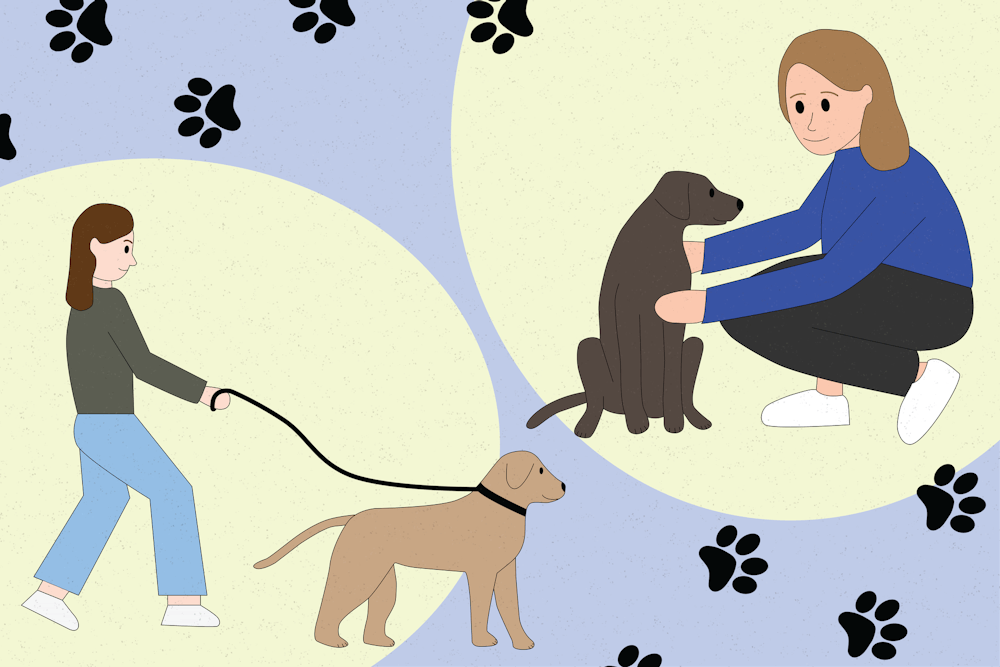After growing up around cats, rabbits, frogs, llamas, donkeys, axolotls and more, first-year Ella Parry found herself sometimes feeling anxious and detached from home when she moved to UNC without a furry companion.
Following the active shooter on campus last August, she decided to remedy the emotions she felt by applying for an Emotional Support Animal.
“Coming to UNC and not having something to take care of — I felt like I was losing my mind,” Parry said.
Students diagnosed with mental health disabilities are allowed to request approval for ESAs to live in on-campus housing. Once approved by the University's Accessibility Resources and Service Office, these animals provide therapeutic and motivational support in residence halls across campus.
By pouring her energy into miniature dachshund Elton, Parry was forced to care both for her dog and herself.
Her schedule is organized to ensure that Elton is well-socialized and attended to. With her roommate as a "co-parent," the duo ensures Elton is rarely alone in the room for longer than an hour.
Because they are not service dogs, and don’t provide physical or visual assistance to their owners, ESAs are only permitted in their designated residential spaces, and prohibited from entering dining facilities, libraries, academic or athletic buildings.
Despite this, Parry finds many opportunities to involve Elton in the community. Some days it's an enjoyable Franklin Street walk with strangers who become Elton's new friends, and other days it's a visit to Carolina Coffee Shop for a pup cup with blue whipped cream.
“There's something about it — just petting a dog, it can really work wonders,” she said. “I love whenever I walk him around campus, just seeing that effect take hold in other people, even if it's a complete stranger.”




